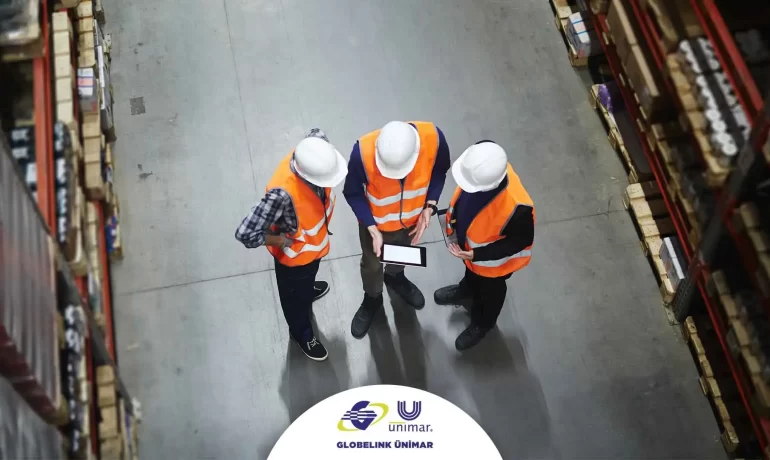
- March 18, 2021
- Blog
The correct policies to be determined regarding management, communication, human resources, quality, efficiency, safety, security, technology, innovation, regulations, financial management, energy efficiency and sustainability will give direction to our logistics industry and therefore, to both production and service industries where physical movements are high.
When considered on a global scale, our country is constantly developing to have great advantages in the field of logistics and to use its potential. National policies should be determined through a visionary perspective and appropriate strategies and actions should be implemented in order to enhance the productivity of the logistics country. A study at this level can be done under the responsibility of the relevant state institutions. What should be done corresponds to the policy and how to do it corresponds to the strategic plans. In this context, the policy areas to be determined for the logistics industry can be listed as management, communication, human resources, quality, efficiency, safety, security, technology, innovation, regulations, financial management, energy efficiency, and sustainability. The correct policies to be determined regarding these subjects will be a guide for the logistics industry of our country and therefore, both production and service industries where physical movements are high. The Ministry of Transport and Infrastructure has recently published the National Transport Policy Document and declared the policies it will follow for its future studies. Some of the policies listed under the main titles of human (passenger), cargo (logistics) and data (communication) related to logistics are mentioned below:
Management and Communication
- Inter-agency planning, monitoring and reporting operations are carried out from a single point by ensuring the regulation, supervision and development work of different duties and all logistics services managed by different public authorities in our country.
- Global perspective and cooperation with international institutions are increased in logistics services, integrations are provided at an international level, the integration into the “single transport area” system, which eliminates all barriers between countries and transport modes in a way to ensure sustainability in freight movements and reduce costs, is ensured.
Human Resources
- Logistics training is supported and disseminated in line with the needs, qualified personnel are trained in the field of logistics, the quality of logistics training is increased through diversification, lesson plans are prepared in accordance with the minimum requirements of logistics training and the needs of the region where the relevant educational institutions are located, an environment of cooperation is ensured between the industry and educational institutions.
- Employment and training levels are developed by making an effective human assets planning based on the understanding of “commitment”, “effectiveness”, “intellectual added value”, taking into account the growing needs of our country and the development of digitization in the industry, qualified and trained personnel are employed in the industry.
Quality and Efficiency
- The companies’ standards of entry to the industry are determined, developed, implemented and audited in the entire logistics industry. Self-audit activities are supported to ensure improvement.
- Turkey Logistics Performance and Cost Index is formed according to the logistics activities on the basis of regions and districts and logistics improvement measures are taken, it is expected to bring the quality of logistics to an equivalent level, considering the needs of quality in all regions.
Safety and Security
- For safety and security purposes, public and private institutions’ Access to transportation data is provided in compliance with the rules.
- Studies on increasing safety and security in all transport modes are supported.
- End-to-end security certificates are developed in order to create secure supply chains without blocking free trade flow.
Technology and Innovation
- Digital transformation programs are supported for all activities and projects realized to increase the level of automation, technology use and digitization in the industry.
- The increase in the levels of R&D and innovation in logistics activities is supported by developing effective and efficient logistics and transportation systems in order to increase the competitiveness of countries, industries and companies.
- Cooperation among research institutions, development agencies, local administrations, universities and technoparks is enhanced in projects and investment studies on the logistics industry.
Regulations
- Gathering the logistics legislation together under a few laws by simplifying and integrating and arranging them in a way that is generally accepted in the industry is given importance.
- Necessary activities are carried out to ensure full compliance and supervision of international transport conventions in domestic transportation by accelerating the studies in compliance with international agreements and rules.
- Legislation and regulations regarding the establishment and operation principles of logistics clusters and centers are handled in a multifaceted manner and are carried out in coordination by the relevant Ministries.
Financial Management
- Within the scope of logistics activities, the “user pays” principle, in which the infrastructure usage fees are paid only by the users and the “polluter pays” principle, the costs of negative impacts on the environment such as air pollutions are paid by the polluters, are applied.
- An integrated and holistic financial approach is applied to freight corridor management, including road access charges.
- Taking into account the characteristics of each mode and applying common principles, it is ensured that external costs (pollution, congestion, noise, accident, corrosion, etc.) for all are internalized through taxes, etc. for all transport modes.
Energy Efficiency and Sustainability
- By modernizing all logistics vehicles and equipment, the average age and emissions of vehicles are raised to world standards.
- Due to the decrease in oil resources and environmental factors, the dependence on oil (traditional fuel use) in transportation is reduced, the level of cost-oriented energy efficiency is increased, and a consensus on mobility and efficiency principles is achieved.
- Considering the requirements of social, environmental and economic dimensions in the establishment or activities of a logistics facility, value is created for all stakeholders, social sensitivity is enhanced, and green logistics is supported.
As it is understood from the specific examples of Turkey’s Transportation Policy on logistics, a comprehensive study that deals with the entire industry from a holistic point of view has been carried out. It is a fact that projects implemented with planning on a city or regional basis may remain infertile or conflict with each other. This policy document is also a template for future investments.
While projects that are not compliant with the articles mentioned here will be deactivated, projects that maximize total benefit will be handled with priority. In this way, country resources will be used more effectively. As a result of the studies carried out for the 12th Transport and Communications Council, which is planned to be held in October 2021, this policy document will be finalized and become a visionary text that guides our country’s transport and infrastructure projects. For this reason, the support that logistics service providers and users will give to this study is of great importance.
Artificial Intelligence is Both Changing and Transforming
Today, we can see the clues that we will
The Future of the Cargo Market is Shaped by e-commerce
The e-commerce industry has been growing rapidly since the



